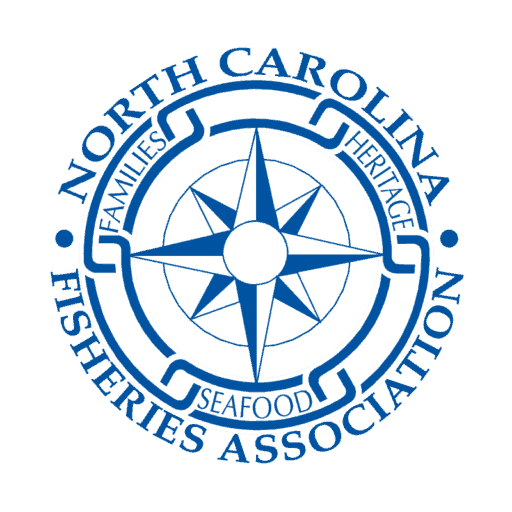Weekly Update: May 06 ,2024
Who has the “right to fish” in North Carolina?
Last week’s newsletter got quite a bit of attention, prompting several folks to reach out to me directly in regard to the constitutional “right” to hunt and fish seen below.
“NC Constitution, Article I section 38 Right to hunt, fish, and harvest wildlife.
The right of the people to hunt, fish, and harvest wildlife is a valued part of the states heritage and shall be forever preserved for the public good. The people have a right, including the right to use traditional methods, to hunt, fish, and harvest wildlife, subject only to laws enacted by the General Assembly and rules adopted pursuant to authority granted by the General Assembly to (i) promote wildlife conservation and management and (ii) preserve the future of hunting and fishing. Public hunting and fishing shall be a preferred means of managing and controlling wildlife.”
While I believe that our constitution gives all citizens the right to fish and that “right” which is clearly “subject to laws enacted by the General Assembly”, applies both to commercial and recreational license holders, one angler who reached out adamantly disagreed.
In his opinion, one line in the Constitution which states that “public hunting and fishing shall be a preferred means of managing and controlling wildlife” is absolute proof that recreational fishing is a right and commercial fishing is not. He claimed that commercial fishermen were businesses or “private entities” and therefore not part of the public and that, according to our constitution, public fishing is the preferred means of fishing in North Carolina. He went on to claim that if the actions of a “private entity” infringed on his right to fish, it was in violation of the States Constitution and must be banned!
While this individual’s interpretation of our Constitution is certainly influenced by the CCA lawsuit against the State, it makes absolutely no sense to me.
Let me start by reemphasizing that the word public simply refers to the people of the State, which includes those who hold commercial fishing licenses, who are licensed to fish under the same state statute as recreational anglers and charter/ for hire fishermen,
Furthermore, the Constitution doesn’t state that public fishing is a preferred method of fishing, it says that “public hunting and fishing shall be a preferred means of managing and controlling wildlife.
This simply means that when wildlife populations need to be managed to prevent the negative impacts that overpopulation, of native or invasive species, can have on the environment, hunting and fishing should be used, as a means of population control, rather than state funded programs such as sterilization or contraception.
One only has to search National Rifle Association, Right to hunt and Fish, or Congressional Sportsmen’s Foundation, Right to Hunt and Fish to verify the true intent of this language. For years, these groups have urged states like North Carolina to include the right to hunt and fish in their constitutions and their rationale for doing so is clearly outlined on their websites.
You’ll also notice that the purpose of the Right to Hunt and Fish Constitutional Amendments is to prevent hunting and fishing from being banned, not to elevate one citizen’s right to fish over that of another. Once the right has been established in our Constitution, it can’t be taken away by future legislation without a public vote to, once again, amend the Constitution, hence the term “shall forever be preserved”.
As for the assertion that the actions of private entities can’t infringe on the public’s right to fish.
Why didn’t the CCA sue powerplants for damming rivers, preventing the free navigation of navigable waters, obstructing many species of fish from accessing spawning grounds, and killing millions of fish annually through their cooling systems?
The truth is, private entities can infringe on the public ability to access public resources, such as navigable waters and the life within, so long as their actions serve the interests of the boarder public, as required under the public trust doctrine. If a judge were to agree that commercial fishermen are private entities and not the public, which I doubt, the same standard would apply to commercial fishing, as seafood production certainly serves the interest of the public.
While everyone’s entitled to their own opinion, I can’t find anything that supports the claims set forth in the CCA’s lawsuit and can only hope that the courts will agree.
Glenn Skinner-NCFA Exe. Director
LEGISLATIVE UPDATE: 5.6.2024
GENERAL ASSEMBLY
The General Assembly has convened, and many bills have been introduced but none involving fisheries. The MARINE LIFE PROTECTION ACT would prohibit releasing balloons. You can find the text of the bill here:
https://ncleg.gov/Sessions/2023/Bills/House/PDF/H922v1.pdf
The bill has been referred to the Appropriations Committee.
FEDERAL ISSUES:
We reported previously that the SAVE OUR SHRIMPERS ACT was introduced on April 10th. Since then, Congressman Greg Murphy has signed on as a cosponsor of the bill.
God bless,
Jerry
Upcoming Events
Contact Us
Addresses
Morehead City, NC 28557
PO Box 86
Morehead City, NC 28557
Call Us
(252) 726-6232 (NCFA)

